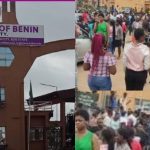•Decry insecurity, economic instability, wasted opportunities in economy, aviation, poor governance, others •Jonathan, others demand electoral reforms
•Housing deficit, unending albatross, trust deficit in leaders growing
•‘Restructuring must not remain a slogan’
AS Nigeria marks the 65th anniversary of its independence from British colonialists today, stakeholders and experts in different fields have lamented wasted opportunities for nationhood, missed opportunities, and unfulfilled potential.
From an unstable economy, to mounting housing deficit, to dwindling educational fortunes, poor service delivery at the level of executive, legislature, and judiciary, sterile growth in the aviation sector, and yawning gap for electoral reforms, the nation appears to be at the starting block of its developmental strides even after 65 years of nationhood.
The widespread concerns have taken the attention of stakeholders, including former President Goodluck Jonathan and other prominent leaders, who have decided to float a national dialogue on electoral reforms on the 65th independence anniversary.
The former Nigerian President is leading other prominent leaders to discuss the issues of electoral reforms on Wednesday (today), in a one-day dialogue to commemorate the nation’s 65th independence.
According to documents made public by the organisers, the gathering, being convened in Abuja, will hold under the auspices of the National Consultative Front (NCF) and the Labour & Civil Society Front (LCSF). It was stated that the gathering is a prelude to the launch of an Electoral Reform Movement ahead of the 2027 elections. A release on behalf of the conveners by Mallam Hamisu San Turaki said that the theme of the event is ‘National Multi-Stakeholders’ Dialogue on Critical Electoral Reforms’, adding that the gathering was being held in partnership with the Nigeria Electoral Reforms Coalition (NERCO) and the Partners for Electoral Reforms.
The statement also listed former Vice President, Professor Yemi Osinbajo, SAN, former Chairman of the Independent National Electoral Commission (INEC), Professor Attahiru Jega, as well as notable figures including Dr Olisa Agbakoba, SAN, Professor Pat Utomi, Comrade Joe Ajaero Dr Usman Bugaje, Professor Mike Ozekhome, SAN, Dr Oby Ezekwesili, Mr Femi Falana, SAN, Senator Shehu Sani, Comrade Festus Osifo, Alhaji Yusuf Mamma Dantalle, Chief Raph Okey Nwosu, Engineer Buba Galadima, Dr Hakeem Baba Ahmed, Hon Amb Nkoyo Toyo, Comrade Isa Aremu, Barr Eze Onyekpere as key actors in the dialogue.
Others also listed include the presidential candidate of the Labour Party (LP) in the 2023 election, Mr. Peter Obi, his counterpart in the New Nigeria Peoples Party (NNPP), Senator Rabiu Musa Kwakwanso, as well as Mallam Bala Mohammed, Sen Ibikunle Amosun, Mr Rotimi Amaechi, Mallam Nasir El Rufai, Dr Gbenga Olawepo, Dr Abduljalil Tafawa Balewa, Prince Wole Adebayo, Esq, Amb. Abayomi Rotimi Mighty and Deacon Chris Iyovwaye.
While the statement listed Prof Anthony Kila, Barr. Clem Nwankwo, Dr Bilikisu Magoro, Comrade Ene Obi and Mr Samson Itodo, as facilitators, it also named Prof Utomi, Dr Tafawa Balewa, Amb. Nkoyo Toyo, Ezenwa Nwagu, Chinedu Oaks Ukpola, Mallam Naseer Kura, and Prince Chris Azor, as coordinators.
Appraising the nation’s predicament at 65, the General Secretary of The Yoruba Initiative, Dr. Femi Adefemiwa, said that the country faces a choice to either remain trapped in wasted opportunities or summon the courage to build a new future.
He said: “The truth must be told; we have missed, even squandered, golden opportunities. With the natural resources at our disposal, a vibrant population, strategic geography, and the ingenuity of our people, Nigeria should today be rubbing shoulders with the likes of Malaysia, India, Pakistan, and Brazil. Instead, poor leadership, military dictatorship, corruption, misdirected militancy, religious extremism, ethnic rivalries, and narrow nationalism have held us back.
“We are a giant blessed beyond measure, yet one that has often stumbled under the weight of our own contradictions. Still, it is not all gloom. The Nigerian spirit is unbreakable. Our young people continue to excel globally in technology, music, sports, and innovation. The Nigerian diaspora remits billions home every year, sustaining families and even propping up the economy. Our entrepreneurs, despite hostile environments, create value daily. These are signs that the foundation for a new Nigeria is alive and waiting to be built upon.
“To get there, we must face hard truths. Restructuring is not just a slogan; it is the key to healing old wounds and calming the loud chorus of dissent. Every group deserves to feel a sense of belonging in the Nigerian project. An inclusive democracy is not optional—it is the only way forward.
“Equally, we must fix our economy. Marxist theory’s base and superstructure concept explains how economic systems shape society. It reminds us that the economy is the base on which everything else rests. “Without jobs, without industry, without productivity, no nation can thrive. We must move beyond dependence on oil and unleash agriculture, technology, and manufacturing. A working economy will shrink unemployment, uplift communities, and restore dignity to our people.
“President Bola Ahmed Tinubu has signaled intent to tackle some of these issues. But intent must translate to impact. For this, he will need not only the cooperation of the National Assembly but also the active participation of Nigerians. Citizens must demand accountability, support genuine reforms, and refuse to be divided by the old fault lines of tribe and religion.
“At 65, Nigeria stands at a crossroads. We can either remain stuck in the cycle of wasted chances, or we can finally summon the courage to write a new story. The Yoruba Initiative believes strongly that a better Nigeria is possible—and we extend our voice of encouragement, our hands of support, and our commitment to the noble task of national renewal.
“May the next decade not be another litany of regrets, but the beginning of the Nigeria we have always dreamed of.”
Lawyers appraise Nigeria at 65
Legal luminaries have also weighed in on the state of Nigeria at 65, declaring that there was an urgent need to address the issues hindering the attainment of the country’s full potential, even as they decried the state of insecurity, economic instability, and poor governance.
ALSO READ: REVEALED: PENGASSAN strike: Motorists groan as fuel queues resurface in Abuja
According to analysis by the legal minds, some of the key challenges facing Nigeria as a country include bad governance and corruption. Many of them submitted that the level of corruption that has plagued every level of government in the country has become a thing of concern to all and that the persistent poor showing of the country on Transparency International’s corruption perception index is a testament to the sad state of things.
Some legal minds also submitted that mismanagement of public funds and weak institutions have eroded public trust and hindered development, just as security crises in the form of Boko Haram insurgency in the North-East, banditry in the North-West, and herder-farmer clashes in the middle belt have left thousands dead and millions displaced. They also mentioned cases of kidnapping for ransom, which they stated have become so rampant. Across the regions.
Speaking to the Nigerian Tribune, Mr. Obioma Ezenwobodo, the Principal Partner of Resolution Attorneys, said, Nigeria’s major challenge lies in its leadership, which has abysmally failed to galvanise and nurture the country to exponential growth. Ezenwobodo, who is the pioneer chairman of the Nigerian Bar Association, Garki branch, in Abuja, said, the country’s leadership is steeped in corruption, misdirection, mis-governance, and mismanagement of the commonwealth.


He said: “Nigeria has missed the opportunities presented by its vibrant population, diversity, abundance of natural resources, and active youth demographic. Currently, the country is missing the vital opportunities presented by the current democratic dispensation to consolidate and build a strong economy and a corruption-free society. The country has missed a great opportunity to introduce a holistic electoral reform to salvage our electoral quagmire.
“The issue of freedom of the press is still a burning issue as activists, journalists, lawyers, and others are being gagged by the Cybercrime Act. Nigeria and its youths are still rudderless, as the majority of them are on social media spreading hate, division, and sectionalism.
“The issue of security is another point where the country has missed a great opportunity, as insecurity is still rife and ravaging the country through terrorism, banditry, kidnapping, armed robbery, and the rest. Furthermore, the country is still missing the opportunity to utilize its vast resources to improve the nation.”
Another lawyer, Emmanuel Umahi Ekwe, Principal Partner, E.E Umahi & Associates noted that as Nigeria commemorates 65 years of independence, it continues to grapple with deep-rooted issues that have hindered its full potential. “These include persistent governance challenges marked by corruption, weak institutions, and uneven enforcement of the rule of law. Security concerns remain grave, with insurgency, banditry, and communal conflicts affecting millions and destabilizing many regions,” he said.
The lawyer added: “On the economic front, despite being Africa’s largest economy, Nigeria faces difficulties in diversifying beyond oil, resulting in vulnerability to global price shocks, high unemployment levels, and poverty that disproportionately affect its youth. Infrastructural inadequacies in power, transport, and healthcare have further slowed progress and productivity. Of particular concern is the judiciary, which ought to be a pillar of justice and the rule of law.
“Unfortunately, the Nigerian judiciary continues to fall short, plagued by delays, inconsistencies, and perceived political interference that undermine public confidence and deny timely justice to citizens.”
He said that the missed opportunities in terms of development are huge in the last six-and-a-half decades, adding that Nigeria has missed several critical opportunities that could have accelerated its development that. He concluded by saying: “Nigeria at 65 stands at a crossroads. The choices made today around governance, security, economic policies, judicial reform, and youth empowerment will determine whether the nation transforms into a prosperous, united, and resilient country. It is a moment for collective reflection and decisive action to turn challenges into opportunities for a better Nigeria.”
Mismatch between what leaders say and do grows trust deficit, setbacks
Stakeholders spoken to by the Nigerian Tribune also identified the mismatch in the words of the leaders and what they do contribute in no small measure to the growing trust deficit between the government and the governed. A former Deputy National President of the Nigerian Labour Congress (NLC), Honourable Joseph Akinlaja, said that the growing trust deficit should be blamed for the underachieving status of the country. Giving his views while speaking with the Nigerian Tribune, he stated that Nigerians no longer trust their leaders to deliver on promises, hence their failure to galvanise them for national development.
Akinlaja, a chieftain of the All Progressives Congress (APC) in Lagos State and a former member of the House of Representatives, noted that political leaders, particularly the President, governors, and local government chairmen, were not only expected to make pronouncements, but must also lead by example. However, he expressed sadness that in the Nigerian situation, while the leaders want the followers to make sacrifices, the former are seen openly taking care of themselves without tightening their own belts. He argued that this “mismatched scenario” had resulted in a trust deficit with implications for growth in Nigeria.
Akinlaja, a former Peoples Democratic Party (PDP), who chaired the House Committee on Petroleum Resources (Downstream), explained, “Whoever is at the helm of affairs, be it the President, the governors and the local government chairmen; they are the ones to implement laws or policies.
“From my assessment, we have laws in Nigeria, but implementation is the problem. Whatever these political leaders say in Nigeria is the law at the various levels.
“So, if that is the reality, it behoves them to allow those they put in place to implement the laws to ensure that the dividends of democracy trickle down to the masses. When this happens, it will engender the confidence of the led in the leader. If people trust you, they follow you.” He also recalled how the NLC mobilised to oppose anti-people policies during the military era. He added, “In Nigeria, the trust has broken down. For example, when I was the deputy president to Adams Oshiomhole, what we used in driving the labour movement was trust. When the people trust you, things will fall in place.”
Akinlaja said it was regrettable that 65 years after independence, Nigeria was still far from realising the dreams of the founding fathers. He cited cases of China and other ‘Asian tigers’, which in 1960 were classified as developing countries with China, South Korea and all those Asian countries. “Today, they are developed, moving from developing to developed. But, for Nigeria, we seem to have moved from developing to under-development,” he said, adding that in Nigeria, “The confidence has broken down between those in government and the governed. So, no matter how the leaders try now, people are sceptical,” he stated.
Professor Paul Ananaba, SAN, also holds the view that it will not be exactly correct to say that the country has remained stagnant in its 65 years of existence, arguing that it has recorded achievements in many areas, though he admits there is a long way to go. He said that compared to 1960, the country had advanced in terms of infrastructure and in international engagements, but urged the leaders to think out of the box to meet the wishes of the majority of Nigerians.
He said: “While it is true that the dreams of the founding fathers have not been fulfilled, it is also true that Nigeria is not where it was 65 years ago. We have achieved some developmental strides. However, the government should tailor more investments toward education, agriculture, health, tackling hunger, and insecurity generally. Some parts of the country have complained about marginalisation. We have to look into their complaints so that as policies are introduced, all Nigerians will feel that their interests have been taken care of and they can support the government’s efforts.”
At 65, Housing deficit still Nigeria’s albatross —Experts
The growing housing deficit equally remains a concern to stakeholders, even as Nigeria marks 65 years as an independent nation. This state of affairs is despite the various Development Plans run by the country’s administrators between 1960 and 2025. Many stakeholders spoken to by our correspondents said that the country still lacks the will and institutional capacity to be self-sufficient in housing. To bridge this deficit, it is also estimated that the country will need to produce 800 000 units of houses annually for the next 20 years. At the moment, Nigeria is said to be producing less than 100,000 units of houses annually, which is a far cry from what it’s required to reduce the accommodation gap.
The challenges are not limited to the high cost of land in urban centres. They include a lack of policy implementation, scarcity of required funds, corruption, policy somersaults, limited access to mortgage, inadequate infrastructure, lack of physical planning, rapid urbanization, lack of government’s political will, among others, have been adduced for increased homelessness in Nigeria
In his assessment of the housing sector 65 years after independence, Managing Director/ CEO, Fame Oyster and Co., Mr. Olufemi Oyedele, blamed the lack of political will and institutional capacity for increasing homelessness among Nigeria. According to him, the housing industry has performed abysmally low in the last 65 years. He described Nigeria’s housing sector as “unorganised, underfunded, corruption-laden, unprofessional, under-productive and lacking direction.”
He said: “Though we have adequate resources to achieve ‘adequate housing’, we lack ‘the will’ and the institutional capacity to be self-sufficient in housing. The government has refused to adequately organise the people to be able to house themselves, and adequate housing remains a mirage despite our 65 years of independence. In many quarters, the question arose that it would not have been a better story in our housing strides if the colonial masters were still in charge? There are a lot of things we can do better to change our housing narratives.”
He expressed displeasure over the accommodation gap in the country, pointing out that no fewer than 60 per cent of Nigerians live in slums.
“These are self-help abodes that people manage to remain hopeful. They manage these squalid settlements and inadequate quality houses with the hope that tomorrow will be better. Some of us have lost hope in a better future due to their past experiences even though the 1999 constitution of the Federal Republic of Nigeria in Chapter 4 claims that housing is a right of all citizens,” he said.


According to Oyedele, major achievements in the housing sector and notable challenges in recent times included the Renewed Hope Housing Programme which “aim is to address the nation’s housing deficit by providing affordable, decent and dignified accommodation for citizens, particularly low-income and vulnerable groups.”
“If the government can achieve this aim, it will go a long way to ameliorate the housing sufferings of the people. The building materials hubs planned to be located in the six geographical zones of Nigeria, and in which one is already set for the Lekki Free Trade Zone, is also a laudable achievement,” he said.
He chided the government of the day, saying that it has not been living up to expectations in the housing sector, considering the huge housing deficit, which experts claimed is now in the region of 28 million units.
Also, Former President, Nigerian Institute of Building (NIOB), Chucks Omeife, said the country housing’s situation in 65 years has said revealed a complex narrative of challenges, policies, and progress.
“A critical assessment shows that Nigeria faces a significant housing shortage, estimated at 17 million units, with a need to produce 800,000 units annually to meet demand. The various governments have launched housing programs, such as the National Housing Policy (1991) and the Federal Housing Authority (FHA), but implementation has been inconsistent. Poor policy formulation, corruption, bureaucracy, and lack of funding have hindered progress in the housing sector,” he said.
He stressed that many dwellings lacked essential infrastructure, with 53.3 per cent of houses considered unsatisfactory by modern standards.
According to him, housing affordability has remained a significant issue, with many Nigerians unable to access mortgage loans due to high costs and limited financial options. He also recognized the critical role played by the private sector in housing development, but pointed out that they faced challenges such as high construction costs, limited access to finance, and bureaucratic procedures. Unfortunately, he said that Nigerians were at the receiving end of various government inconsistencies and policy somersault on housing issues. Despite the notable government achievements in terms of initiatives and policies, including the National Development Plans; National Housing Policy, and Federal Mortgage Bank of Nigeria, he pointed out that the major challenge was lack of implementation of set government policies by successive administrations.
“The government of the day, just like past governments, has a robust and well-thought-out policy and intervention in housing development. What is yet to be seen is the result of these various interventions as the government continues to promise based on the renewed hope agenda in the housing sector,” he said.
He suggested that the Nigerian housing sector required sustained efforts to address the shortage, improve quality, and increase affordability.
“This can be achieved through: Improved policy implementation; effective implementation of housing policies and programs; increased funding; adequate funding for housing development and infrastructure; private sector engagement, encouraging private sector participation in housing development, affordable housing options, and promoting affordable housing options for low-income earners,” Omeife suggested.
However, the cost of housing has continued to rise, making it unaffordable for low and medium-income earners. Despite the latest efforts by the government at addressing housing deficit in the country through the Renewed Hope Housing Programme by creating the Renewed Hope Cities and Renewed Hope Estates, most stakeholders, especially middle- and low-income Nigerians in need of accommodation are yet feel the impact, almost two and half years of the incumbent president. Investigations by Nigerian Tribune revealed that most of the housing estates, of 250 units each, are in different stages of completion in about 12 states of the federation, including Abuja.
Aviation: Still wobbling without a national carrier
Nigeria’s aviation industry continues to grapple with fundamental challenges, chief among them is the absence of a robust national carrier, 100 years after the first flight landed in the country in 1925. Despite the country’s vast potential and growing demand for air travel, the sector remains heavily dependent on foreign airlines, which reap significant benefits while local carriers struggle to stay afloat.
The statistics are telling: local airlines benefit from less than 5 per cent of the market share on foreign routes, while their foreign counterparts dominate with a staggering 95 per cent. This disparity underscores the urgent need for a strong national carrier that can compete effectively in the global aviation market. Experts point to the lack of a national carrier as a major barrier to the industry’s growth.
Chris Aligbe, CEO of Belujane Konsult, noted that the absence of a national carrier for over two decades has impacted technical competence and managerial ability, leading to a dearth of technical know-how in the sector. The liquidation of Nigeria Airways in 2003 marked the beginning of this decline, and despite numerous attempts to revive a national carrier, none have come to fruition. The most recent attempt, Nigeria Air, was unveiled with much fanfare but has stalled due to political wrangling and public skepticism. Aviation and Aerospace Development Minister Festus Keyamo’s declaration that the government will not spend “a dime” on a state-backed national airline has drawn criticism, with many seeing it as a setback to long-standing efforts to revive a national flag carrier.
Industry stakeholders argue that a national carrier would not only boost the economy but also create jobs and stimulate tourism. With a population of over 200 million people, Nigeria needs an airline that can connect its citizens to the world efficiently and reliably. The absence of such a carrier has led to capacity constraints, flight disruptions, and delays, ultimately affecting the nation’s economy. The Nigerian Civil Aviation Authority (NCAA) has identified capacity issues as a primary cause of flight disruptions and delays. According to Michael Achimugu, Director of Public Affairs and Consumer Protection at NCAA, the scarcity of adequate aircraft among Nigerian airline operators is at the root of the challenge.
However, the recent signing of the Cape Town Convention (CTC) practice direction has paved the way for domestic airline operators to access aircraft on dry lease, which could help alleviate the capacity problem. To break this cycle, experts recommend that the government reconsider its stance on investing in a national carrier. Auwalu Babura, Group Managing Director/CEO of Red Star Express, emphasizes the need for improved air cargo operations to positively impact Nigeria’s GDP. This can be achieved by investing in cargo aircraft and developing a more coordinated approach to air cargo logistics. In all, stakeholders are of the view that the Nigerian aviation industry will continue to wobble without a robust national carrier. To redress the situation, they believe that the government must prioritize the development of a strong aviation sector by investing in a national carrier, improving infrastructure, and creating a conducive environment for local airlines to thrive. Perhaps only then will Nigeria be able to unlock its full potential in the aviation industry to the benefit of its economy and the people.
WATCH TOP VIDEOS FROM NIGERIAN TRIBUNE TV














